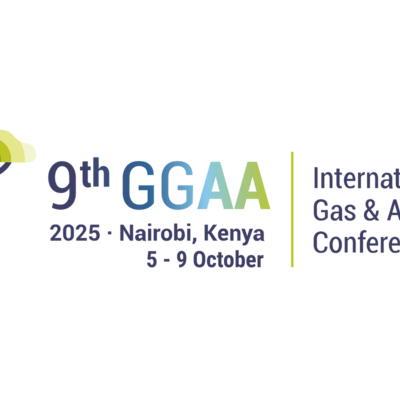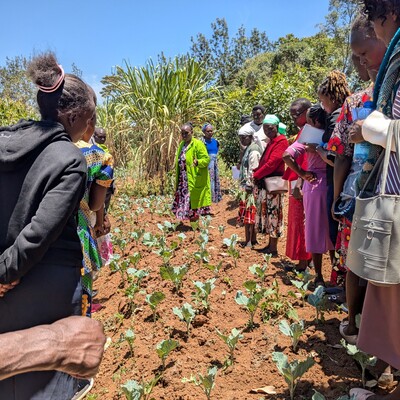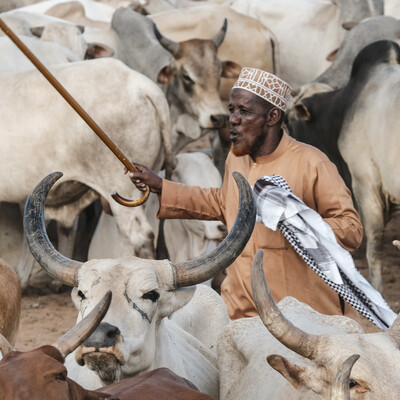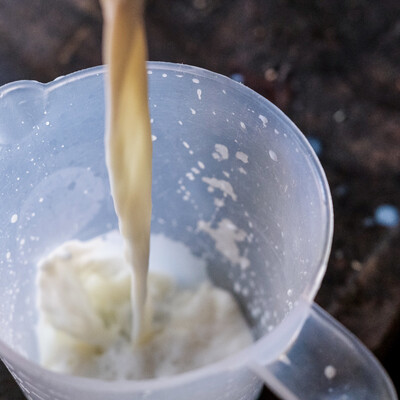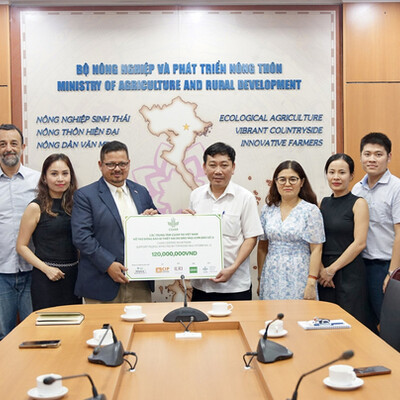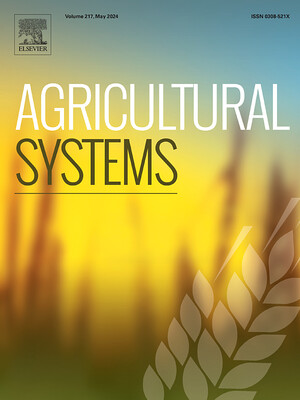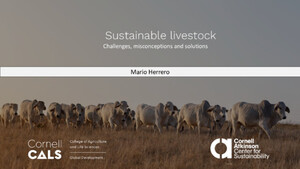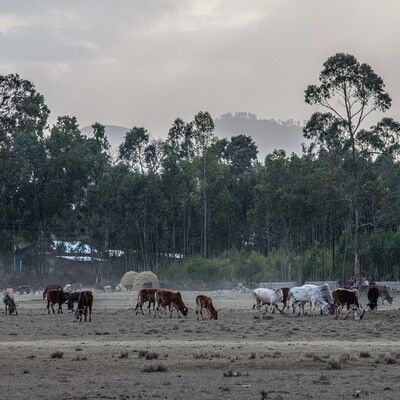
Implementing climate action and measuring progress in the African livestock sector
Climate action in the livestock sector in Africa made it into conversations at the 60th Bonn Climate Change Conference on 4 June 2024. While we have heard a lot about the importance of agriculture, food security and food system transformation in relation to the UNFCCC climate negotiations, discussions on livestock systems do not always feature prominently due to the controversial nature of animal-source food production.
The International Livestock Research Institute (ILRI), the CGIAR Livestock and Climate Initiative, Canada’s International Development Research Centre (IDRC), and the African Group of Negotiators Expert Support (AGNES) organized a side event to discuss how to incorporate climate action in the sector, and how to progress.
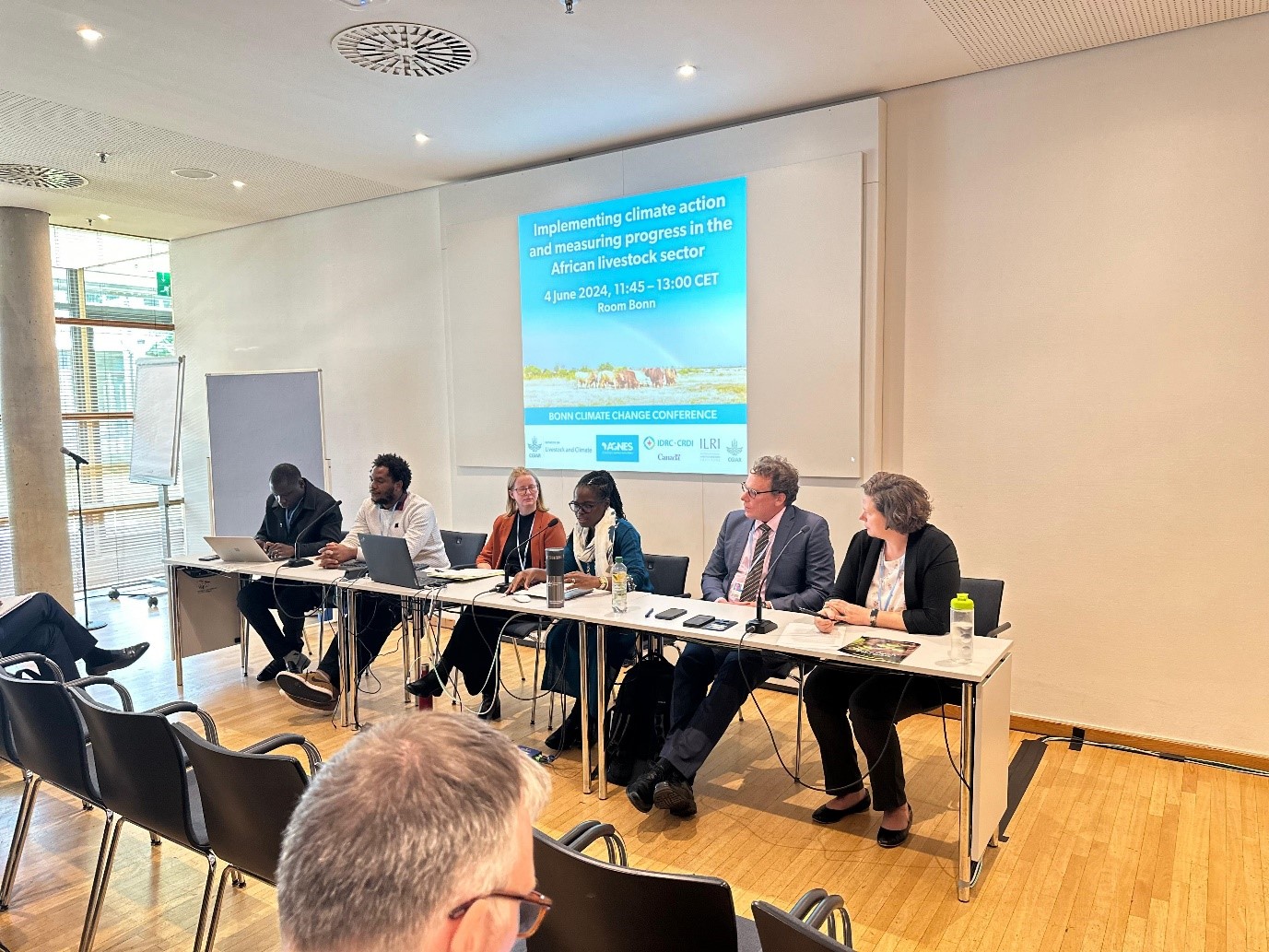
Payai John Manyok, deputy director for climate change in the Ministry of Environment and Forestry and the UNFCCC National Focal Point for South Sudan, delivered opening remarks for the event. He highlighted that most livestock keepers in Africa are smallholders who practice mixed crop and livestock farming under rainfed conditions. The agricultural sector, including livestock production, is a large part of many African economies. There are about 270 million people in Africa whose livelihoods depend on keeping animals. But they are facing multiple challenges related to the changing climate, including increased heat stress, reduced fodder availability, greater spread of climate-related diseases, and many other issues.
To help livestock keepers across Africa deal with the changing climate, Manyok called for improved research on indigenous breeds and systems, enhanced water and pasture management accompanied by social safety nets, more research and dissemination of technologies that can improve productivity, and the finance and investments to make these things happen.
Manyok’s opening remarks were followed by a panel discussion that brought out additional issues specific to livestock-keeping in Africa.
Alexander Lotsch of the World Bank’s Agriculture and Food Global Practice and co-author of new report ‘Recipe for a Livable Planet’, and Maike Voss from the GIZ sector project Rural Development, each spoke about their organizations’ efforts to include more investments in the livestock sector within Africa to improve productivity while not compromising food security. Voss emphasized the importance of not falling victim to one-sided narratives that portray all livestock as having negative environmental effects.
Lamine Diatta of the Senegal Ministry of Environment and Ecological Transitions picked up on this statement. He noted that the livestock sector is misunderstood and seen as the driver of emissions, deforestation and biodiversity loss. In fact in some areas, particularly in the Sahel, pastoralist production is able to sequester carbon. Therefore the specific context of livestock should be considered, and rather than focus only on emissions from animals, we need to calculate the holistic benefits and harms. This requires measuring contributions to economy, livelihoods, nutrition, land management and other aspects of farmers’ lives.
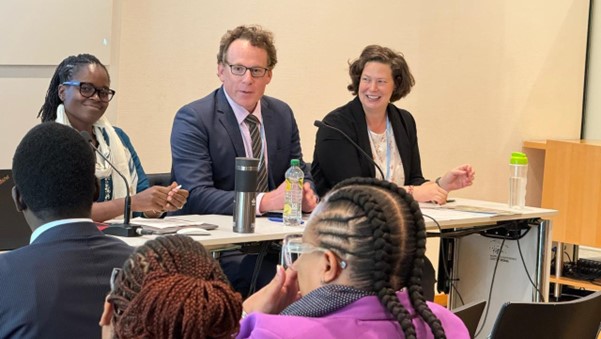
Vivian Atakos from the CGIAR GENDER Impact Platform delved more deeply into the aspects of implementing climate action in livestock and noted that we should ask questions related to gender considerations in five key areas: livestock ownership, decision making regarding land use, access to credit, access to markets and information and interactions between animal and human health. Men and women will differ in each of these aspects and interventions need to take this into account.
The panel discussion then shifted to how interventions in the livestock sector can be measured through improved indicators and inclusion of these in the framework of the Global Goal on Adaptation (GGA).
Luckson Zvobgo of the African Climate and Development Initiative of the University of Cape Town pointed out that there are two key areas of the GGA targets where livestock indicators could be incorporated: agriculture and health. Both he and event moderator Laura Cramer of ILRI urged agriculture negotiators in the audience to liaise with their GGA counterparts to discuss how to purposefully incorporate livestock as they develop indicators through the UAE-Belém work programme.
Diatta gave a closing message to the session. He urged researchers, policymakers and development partners to work more towards implementing adaptation in the African livestock sector. He also called for a focus on the human lives that are centred in these systems, saying we should not focus just on animals, but also understand the social systems surrounding production. We should always keep in mind that it is the people keeping the livestock who are affected by the changing climate.






